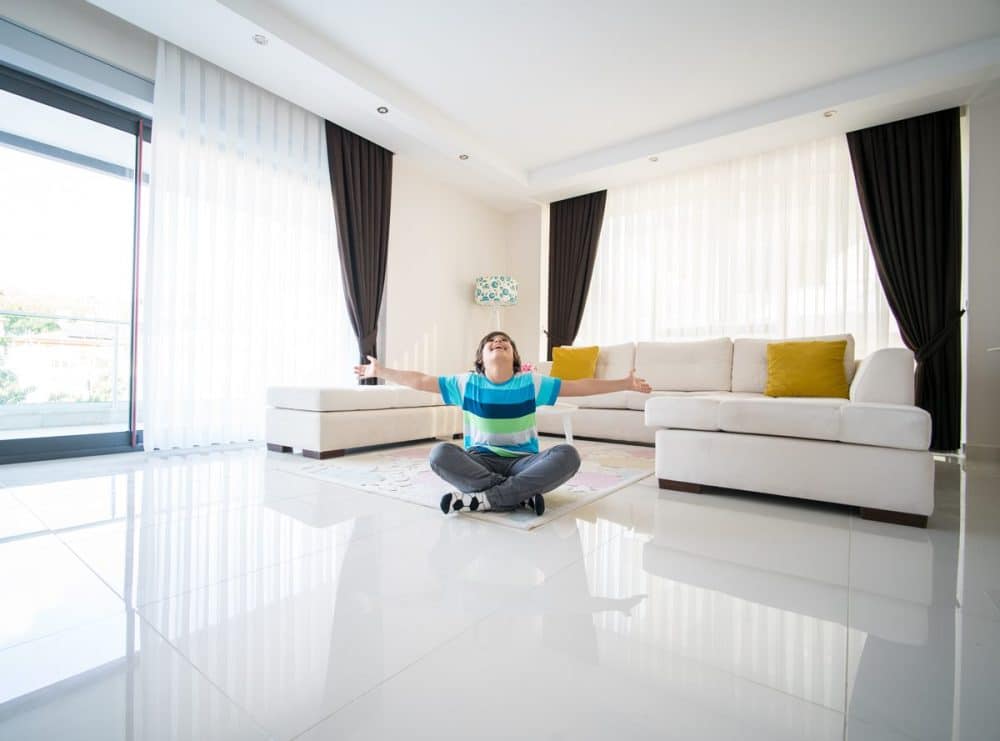Most people are willing to make decisions that allow them to be healthier. That might mean avoiding cigarettes, drinking fewer sugary soft drinks, or eating more vegetables on a regular basis.
But the things that affect our health are diverse, all around us, and on occasion, hard to notice. For example, there are probably dozens of features and items in your house that impact your health, positively or negatively, without your conscious awareness.
How does your home impact your health directly? And what can you do about this?
The Location
First, the overall location of your house plays a significant role in your health and wellbeing due to crime, convenience, and pollution.
Some areas have higher crime rates than others. Living in an area with a higher rate of violent crime exposes you to more violent crime risk. Even if you’re never the victim of a crime, living in an area with high crime can be stressful. This can negatively affect your health.
The convenience of your area can also play a role in how much stress you do or don’t experience. For example, if you’re forced to park on the street, which is often a struggle to find, you might have a stressful end to your workday.
Where you live can also introduce you to higher or lower levels of pollution. For example, if you live close to an industrial facility or a busy highway, the quality of your air might be lower than if you lived in more urban areas.
Indoor Air Quality
You’ll also need to think about the quality of your indoor air. Cleaner air is associated with better lung and cardiovascular health.
There are many individual things to consider as part of this equation. For example, having an indoor fireplace is a taste of luxury, but it can also significantly harm the quality of your indoor air if you don’t take proper care of it. When choosing a fireplace, ensure that it has adequate ventilation. You should also schedule routine cleaning and maintenance.
You’ll also need to consider the use of air purifiers and plants. Air purifiers can help you maintain a higher quality of indoor air. Studies have also shown that indoor plants can have a filtering effect as well, boosting not only air quality but also your mood.
Accessibility
There is no question that physical exercise and active lifestyles are essential for health. As an example, people who climb stairs regularly have significantly lower risk of mortality than their more sedentary counterparts.
You may not like climbing the stairs all the time, but houses with stairs force their residents to exercise every day.
The layout of your house may also force you or allow you to move around more freely, helping you get more incidental exercise.
If there are many rooms of your house that are blocked off, you won’t be able to navigate as commonly or effectively, reducing the amount of incidental exercise you get.
Cleanliness
Cleanliness and hygiene also matter for your health. Cleaner houses are less susceptible to the spread of infectious diseases and preventable illnesses.

Everything in your house needs cleaning, but not at the same level of priority. For example, you should probably clean your bathroom at least once a week, but you can get away with wiping down the kitchen cupboards only a few times a year.
The presence of clutter can impact your health, so declutter your surroundings on a regular basis. And if you start to get tired of your surroundings, make a change – a fresh coat of paint could instantly boost your mood.
Sleep Conduciveness
Sleep is a huge factor for good physical and mental health, so it’s important to make sure your house contributes to good sleep habits.
Your bedroom should ideally be quiet, dark, and cool to make for an ideal sleeping environment. Simple upgrades like better insulation, sound resistant windows, light blocking curtains, and thicker carpet can make a big difference.
Your bed needs to be comfortable and suited to your personal sleeping style. Some people prefer firmer mattresses, while others prefer softer ones. Get the type of bed that works best for your needs.
There are also some secondary factors to consider here, such as how easy it is to watch TV before bed (a big no-no for people serious about their sleep).
As you can see, your home impacts your health in many ways. The more proactive you are about controlling your home environment, the more your health can improve.
